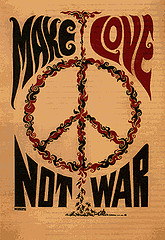アメリカã®expatプãƒãƒ•ã‚¡ã‚¤ãƒ«: 米国ã‹ã‚‰. カナダã®å®˜åƒšã¸ã®ãƒ‰ãƒ©ãƒ•ãƒˆæŠµæŠ—
 In the 1960s and ’70s, during the Vietnam War, somewhere between 30,000 㨠40,000 アメリカ人ã¯å¾´å…µã‚’逃れるãŸã‚ã«ã‚«ãƒŠãƒ€ã«æ¥ãŸ — and many of them stayed. ザ ニューヨークタイムズ recently profiled one of these expats.
In the 1960s and ’70s, during the Vietnam War, somewhere between 30,000 㨠40,000 アメリカ人ã¯å¾´å…µã‚’逃れるãŸã‚ã«ã‚«ãƒŠãƒ€ã«æ¥ãŸ — and many of them stayed. ザ ニューヨークタイムズ recently profiled one of these expats.
マイケル·ウォルフソンã¯ã€å¹´ã«ã‚«ãƒŠãƒ€ã«åˆ°ç€ 1968, after his application for conscientious objector status was rejected. ã«ã‚ˆã‚‹ã¨ タイムズ, å½¼ã¯ãƒ‰ãƒ©ãƒ•ãƒˆãƒœãƒ¼ãƒ‰ã«æ›¸ã„ãŸ, saying, “The reason I did not comply with your order [to report for military service] is that I did not, on that particular day, feel like it….”
最終的ã«ã¯, ã‚‚, Wolfson settled down and grew up. He earned a bachelor of science degree from the トãƒãƒ³ãƒˆå¤§å¦ and went on to receive a Ph.D. in economics from Cambridge University in the U.K. 今日ã®, he has dual U.S.-Canadian citizenship and works as a senior statistician for カナダ統計局.
ã™ã‚‹ã“ã¨ãŒã§ãã¾ã™ ã®æ®‹ã‚Šã®éƒ¨åˆ†ã‚’èªã‚€ タイムズ ã“ã“ã«è¨˜äº‹. To learn more about what happened to many of the Vietnam-era draft resisters in Canada, have a look at the book, 北航路: カナダã®ã‚¢ãƒ¡ãƒªã‚«ãƒ™ãƒˆãƒŠãƒ 戦争抵抗, by sociologist ジョン·ãƒãƒ¼ã‚¬ãƒ³.
WalkingGeekã®å†™çœŸ (Flickrã®)




















